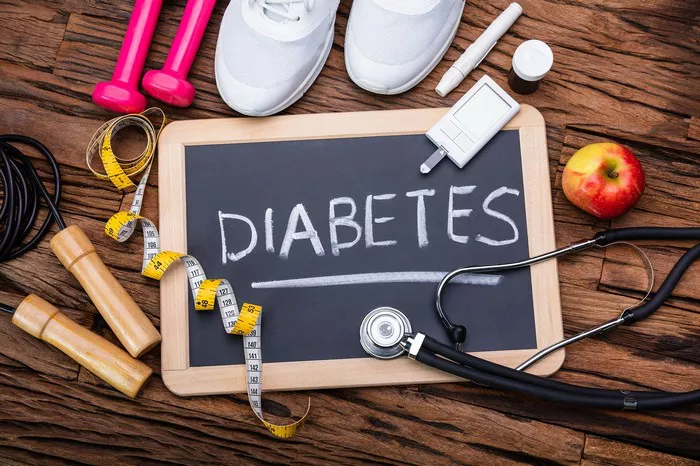Managing type 2 diabetes effectively is crucial for maintaining overall health and preventing complications. The condition affects how your body processes glucose, leading to elevated blood sugar levels. However, with the right strategies, individuals can achieve better control over their diabetes. This article outlines various effective methods to manage type 2 diabetes, emphasizing lifestyle changes, diet, exercise, medication, and regular monitoring.
Understanding Type 2 Diabetes
What is Type 2 Diabetes?
Type 2 diabetes is a chronic condition that affects the way your body metabolizes sugar (glucose). It is characterized by insulin resistance, where the body’s cells do not respond effectively to insulin, or by a decrease in insulin production. As a result, glucose builds up in the bloodstream, leading to high blood sugar levels.
Risk Factors for Type 2 Diabetes
Several factors can increase the risk of developing type 2 diabetes, including:
Genetics: Family history of diabetes.
Age: Risk increases with age, particularly after 45.
Obesity: Excess body fat, especially around the abdomen.
Sedentary Lifestyle: Lack of physical activity.
Poor Diet: High in refined carbohydrates and sugars.
Hypertension: High blood pressure.
High Cholesterol Levels: Elevated LDL cholesterol and low HDL cholesterol.
Strategies for Controlling Type 2 Diabetes
1. Healthy Eating
Balanced Diet
A balanced diet plays a crucial role in managing diabetes. Focus on incorporating a variety of nutrient-dense foods, including:
Whole Grains: Brown rice, quinoa, and whole-grain bread provide fiber and nutrients.
Fruits and Vegetables: Aim for at least five servings a day. They are low in calories and high in fiber, vitamins, and minerals.
Lean Proteins: Opt for sources like chicken, fish, beans, and legumes. Protein helps maintain muscle mass and keeps you feeling full.
Healthy Fats: Include sources of healthy fats like avocados, nuts, seeds, and olive oil.
Carbohydrate Management
Understanding carbohydrates is vital for controlling blood sugar levels:
Carbohydrate Counting: Learn to count carbohydrates to manage your intake effectively.
Glycemic Index: Choose foods with a low glycemic index (GI), as they have a slower impact on blood sugar levels. Foods with a low GI include whole grains, legumes, and non-starchy vegetables.
Portion Control
Monitor Portion Sizes: Be mindful of portion sizes to avoid overeating. Using smaller plates and measuring servings can help.
Mindful Eating: Practice mindful eating by focusing on your meals, chewing slowly, and paying attention to hunger and fullness cues.
2. Regular Physical Activity
Benefits of Exercise
Engaging in regular physical activity has numerous benefits for managing diabetes:
Improves Insulin Sensitivity: Exercise helps the body use insulin more effectively.
Lowers Blood Sugar Levels: Physical activity can lower blood sugar levels during and after exercise.
Promotes Weight Loss: Regular exercise helps in maintaining a healthy weight, reducing the risk of complications.
Types of Exercise
Aim for at least 150 minutes of moderate-intensity aerobic activity each week, along with strength training exercises at least twice a week. Consider incorporating:
Aerobic Activities: Walking, jogging, swimming, or cycling.
Strength Training: Lifting weights or using resistance bands to build muscle.
Flexibility and Balance Exercises: Yoga or tai chi can improve flexibility and balance.
Making Exercise a Habit
Set Realistic Goals: Start with achievable goals and gradually increase your activity level.
Find Activities You Enjoy: Choose exercises that you find enjoyable to increase adherence.
Incorporate Movement into Daily Life: Look for opportunities to be active, such as taking the stairs, walking during breaks, or gardening.
3. Medication Management
When Medication is Necessary
In some cases, lifestyle changes alone may not be enough to control blood sugar levels. Medications may be prescribed, including:
Metformin: Often the first-line treatment for type 2 diabetes, it helps lower blood sugar levels by improving insulin sensitivity.
Sulfonylureas: Stimulate the pancreas to produce more insulin.
GLP-1 Receptor Agonists: Help lower blood sugar levels and can promote weight loss.
Insulin Therapy: May be necessary for some individuals to achieve blood sugar control.
Regular Consultation with Healthcare Provider
Follow-Up Appointments: Regular visits to your healthcare provider are essential for monitoring blood sugar levels and adjusting medications as needed.
Discuss Side Effects: If you experience side effects from medications, communicate with your healthcare provider to find suitable alternatives.
4. Blood Sugar Monitoring
Importance of Monitoring
Regular monitoring of blood sugar levels is essential for managing diabetes effectively:
Track Progress: Monitoring helps track how well your diabetes management plan is working.
Identify Patterns: Recognize patterns in blood sugar levels related to diet, exercise, and medication.
Types of Monitoring
Self-Monitoring of Blood Glucose (SMBG): Use a glucose meter to check your blood sugar levels at home.
Continuous Glucose Monitoring (CGM): This device provides real-time blood sugar readings throughout the day.
Setting Target Goals
Personalized Goals: Work with your healthcare provider to establish target blood sugar levels that suit your individual needs.
5. Stress Management
Impact of Stress on Diabetes
Stress can significantly affect blood sugar levels. It triggers the release of hormones like cortisol and adrenaline, leading to increased blood sugar. Managing stress is vital for overall health and diabetes control.
Stress Management Techniques
Mindfulness and Meditation: Practices such as mindfulness meditation can help reduce stress and improve mental well-being.
Deep Breathing Exercises: Simple deep breathing techniques can promote relaxation and reduce anxiety.
Engage in Hobbies: Spend time doing activities you enjoy to take your mind off stressors.
Social Support: Connecting with friends and family can provide emotional support and reduce feelings of isolation.
6. Regular Health Check-ups
Importance of Routine Check-ups
Regular check-ups with healthcare providers are crucial for managing type 2 diabetes. They provide an opportunity to assess your overall health, monitor complications, and make necessary adjustments to your management plan.
Key Health Assessments
Blood Pressure Monitoring: High blood pressure is a common concern for individuals with diabetes. Regular monitoring can help prevent complications.
Cholesterol Levels: Check lipid profiles regularly to manage cardiovascular risk.
Foot Health: Regular foot exams can help detect and prevent complications related to neuropathy.
7. Education and Support
Continuous Learning
Staying informed about diabetes management is vital. Consider participating in diabetes education programs, workshops, or support groups to learn from others’ experiences and gain valuable insights.
Seek Professional Guidance
Registered Dietitian: Work with a registered dietitian to develop a personalized meal plan that meets your needs.
Certified Diabetes Educator: Consult with a certified diabetes educator for tailored strategies and support.
8. Avoiding Unhealthy Habits
Quit Smoking
Impact of Smoking: Smoking increases the risk of complications related to diabetes, including cardiovascular disease and neuropathy. Seek support to quit smoking and improve overall health.
Limit Alcohol Consumption
Moderation is Key: If you choose to drink alcohol, do so in moderation. Monitor how alcohol affects your blood sugar levels, and never drink on an empty stomach.
See also: What Bread is Best for Type 2 Diabetes?
Conclusion
Controlling type 2 diabetes requires a multifaceted approach involving lifestyle changes, dietary modifications, regular exercise, medication management, and ongoing monitoring. By implementing these strategies, individuals can effectively manage their blood sugar levels, improve their quality of life, and reduce the risk of complications. Education and support from healthcare professionals are essential in this journey. Remember that every individual is unique, and personalizing your management plan is key to achieving optimal results. With commitment and determination, it is possible to lead a healthy and fulfilling life while managing type 2 diabetes.
Related topics:
What Type of Exercise Is Good for Diabetes?



























